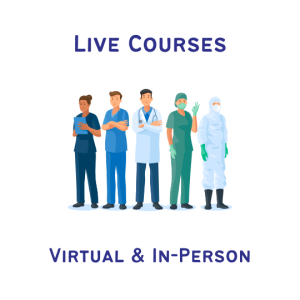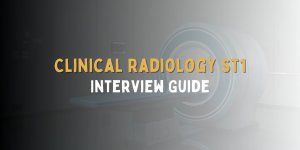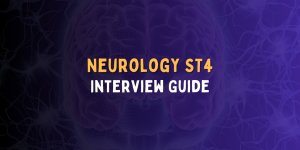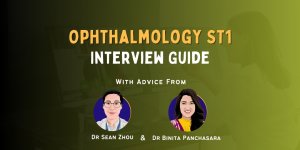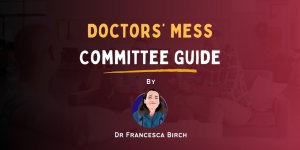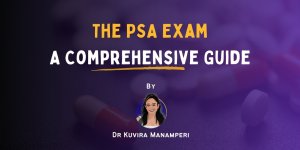
Published July 17, 2022 | Updated July 11, 2023
By MedCourse
Useful, relevant, and interesting content for UK Junior Doctors.
As part of our #BlackWednesday series, we will cover 34 of the best resources for those FY1 (foundation year 1) doctors landing on the wards for the first time on Wednesday 3rd August 2022, as well as other junior doctors who are stepping up their responsibility. These resources are completely FREE, and the list does not include any affiliate links – we just genuinely love all these resources.
This is a fraught time that fills many with dread – but thankfully medicine as a profession is altruistic at heart and we choose to share our knowledge, strength, and experience free of charge more often than not. Most of these resources are helpful not only to foundation doctors but to UK junior doctors in general.
Resources Specific to FY1 (Foundation Year 1) Doctors

Let’s be honest – FY1 doctors need all the help they can get.
We all remember that feeling of stepping up – from lowly side-character on the wards, to suddenly having actual responsibility! Part of becoming a good FY1 is realising that you can and should ask for help whenever you are having a challenging time. We’ve all been there – your foundation years are a difficult but rewarding time!
With that in mind, we’ve collected a few of the best free resources available for FY1 and junior doctors starting in the NHS on Black Wednesday 2022.
1. Surviving FY1 course | Mind the Bleep
This free online course is a great kickstart to your career as an FY1 doctor. If you have some time before you start your first FY1 job, the surviving FY1 course could be really helpful. The course is detailed and video-based, covering topics including:
- Ward rounds & ward work
- Being on call & staying organised
- Tips for medical and surgical wards
- How to call for support from seniors and other specialities
- The FY1 e-portfolio
The course currently has a 5-star rating, and we can assure you that it is a thorough introduction to common FY1 jobs in the United Kingdom!
2. Guide to Being a Confident & Competent FY1 Doctor | ATSP
The Asked to See Patient website takes the North West deaneries’ “ATSP: The Ultimate Guide to Being a Confident FY1 Out of Hours” booklet and adds video content and webinars. ATSP goes through common scenarios that any FY1 will face while on call. The booklet is handed out to new trainees in the North West, but if you are outside of this area, you can keep the PDF handy or install the app.
The booklet goes into topics including:
3. Advice, Podcasts, and Events for Foundation Doctors | The Next Step
The Next Step is a recent initiative from Wesleyan, a financial advice business who are active in medical schools. As well as the (surprisingly high quality) free pens you may have gleaned from Wesleyan as a medical student, you can now take advantage of this new initiative, which has free articles, events, and podcasts for FY1 and FY2 doctors.
Recent resources include:
- A course on preparing for FY1
- A recorded seminar on work life balance
- Experience blogs on “my first patient”
- Top five tips for building resilience in FY1
4. Transition to F1 Course | Medics Academy – F|Docs
The transition to F1 course by Medics Academy is an excellent free course which includes video tutorials, text documents, and a quiz to help get you up to speed before your first day on the wards. The course is well produced, professional, and contains information on some of the most vital parts of working as a junior doctor.
The course includes sections on:
- Common clinical scenarios you will face as an FY1
- How to prepare yourself for on-call shifts
- Common prescriptions
- How to structure your entry in the medical notes
- Looking after your well-being as a foundation doctor
5. Sharp Scratch Podcast | BMJ
This fortnightly podcast by the British Medical Journal follows issues that are relevant to FY1 doctors in the United Kingdom. The Sharp Scratch podcast focuses on culture, career, and topics that aren’t usually well taught in medical schools. Some of their latest episodes cover topics such as:
- Raising concerns as a junior doctor
- The role of med students in activism
- Considering confidentiality when discussing patient’s stories
- What you weren’t told about working as a junior doctor
Clinical Advice and Medical Education

There is a TONNE of free information out there if you know where to look. Sometimes google is your best friend when you’re considering what’s going in your clerking plan – but you must be careful to look out for worthwhile advice. If it’s 4am on your night shift and there isn’t a senior in sight, you can make the most of the information available so long as you know where to look.
Guidelines, culture, and practice in the UK can differ from other parts of the world, which those doing working abroad for a year in places such as Australia and New Zealand should keep in mind. As an FY1 doctor in the United Kingdom, you should ensure you’re looking at guidelines which use appropriate UK-based sources of information. As you progress through your career you will find a way to sieve through online resources to find the right answer, but the resources below are a fantastic starting point.
There are a few incredible websites out there that are either UK-focused or share articles that are relevant to healthcare professionals across the globe. Here we list a few of our favourites.
6. Webinars and Articles for Junior Doctors | Mind the Bleep
Mind The Bleep is an incredible free medical education platform for junior doctors, with hundreds of articles and webinars covering common clinical scenarios you will face on the wards. Their website is constantly being updated and contains clinical advice on most of the day-to-day challenges you will face as a foundation doctor, including:
- Common emergency scenarios
- When to request scans
- How to interpret x-rays and CT scans
- Articles on a whole range of medical and surgical specialities
- Common scenarios in paediatrics and psychiatry
- How to manage and organise common daily jobs
- Interpreting and managing abnormal investigations
7. Clinical Advice Articles and Videos | Geeky Medics
Geeky Medics is another incredible compendium of articles, quizzes and videos on common clinical topics that are relevant to junior doctors. They also have an app which is a handy way to learn when you’re at work. Their website includes sections on:
- Clinical Examination
- Procedures
- Communication
- Interpretation
- Medicine
- Surgery
- Anatomy
- Quizzes
- Cases
The new OSCE stations section of the Geeky Medics is a fantastic way to practise examination skills with your peers – particularly if you’re planning to undergo PACES (or MRCS – if you’re willing to pay for the premium sections). You can access the respiratory and cardiovascular examination stations for free, which include candidate instructions, patient details (including signs), and examiner information. The platform allows you to work remotely with friends or find a partner online.
8. ECG Basics and Cases | Life in the Fast Lane
Life in the fast lane is an amazing compendium of ECGs, clinical cases, and articles that is free to use and perfect for FY1 doctors fresh on the wards. They have a page for pretty much every ECG pattern you will ever come across, and their explanations are clear and concise. The LITFL section on ECG basics is a godsend – perhaps the only reason we understand the cardiac axis!
9. Radiology Reference Articles | Radiopaedia
If you don’t know your AXR from your CXR, and you’re mixing up your Kerley B’s and your Kerley C’s, Radiopaedia is the place to go. While the site covers some pretty complex radiology signs, their articles on basic x-rays and CT scans are excellent, and a perfect way to learn to spot pathology. Each article comes with reference images and tonnes of clinical information so that you can “clinically correlate” to your heart’s desire.
10. Bite-sized Education at Your Fingertips | Figure 1
Figure 1 is a medical education app that gives you an endless feed of picture-based clinical cases so that you can learn wherever you are. If you’ve had a long placement away from medicine, the figure 1 app can help you get your skills sharpened. The figure 1 app also allows you to discuss difficult cases with experts, to learn and help you to deliver the best possible care.
Career Opportunities & Professional Development

It might feel like all of your peers have a 10-year plan, 6 national audits, 15 PubMed citations, and a PhD in being a competitive candidate – but you’d be surprised!
Everybody starts from somewhere, and if your portfolio has been collecting dust while you got your head around the complicated world of medicine, there are a few easy wins to get you in a better place for your speciality application.
Even if you’re not aiming to become London’s number 1 Neurosurgeon, a good CV can help you land you your ideal rotations in a better location – so it doesn’t hurt to have a competitive portfolio. There is an inequity in the distribution of career opportunities across the UK, so we have compiled some of the best places on the internet to find career opportunities.
11. Research Projects, Medical Prizes, and Conferences | MedProjectHub
MedProjectHub’s opportunities section is a growing resource for junior doctors who want to improve their CVs and become competitive candidates at speciality application. Research Projects can be hard to come across if you find yourself in an area with a dearth of academic consultants, so this resource could be vital if you’re keen to pursue academia.
MedProjectHub is a great place to find prizes that can give a boost to your speciality application score, as well as netting you some extra pocket money! Their opportunities section also advertises large Quality Improvement Projects that you can take part in, fulfilling some of your FY1 e-portfolio requirements and getting you in contact with like-minded peers.
12. Online and Face-to-Face Courses | MedCourse
Yes – this is indeed a cheeky plug for our site.
MedCourse is the best place on the internet for junior doctors to find courses in the UK. Not only are courses a great way to learn a new skill, but it also gets you off the wards and, for FY2+ doctors in the United Kingdom, these courses can be paid for out of your study budget.
Courses are a fantastic way to show dedication to speciality when it comes to applications and interviews and can add to both IMT and CST application score totals. Not only this, but if you’ve invested time into a skills course and have demonstrated enthusiasm in the relevant speciality, you’ll endear yourself to your seniors and might be able to score a few extra career opportunities.
On MedCourse we focus on high-quality courses where you can learn a new skill – courses you actually want to go to! Forget fanning through thousands of online CPD courses on “toenail infections in pregnant diabetics” – we show you courses relevant to you!
We currently advertise courses from many well-known UK course providers, on subjects such as:
- Procedural skills
- Ultrasound courses
- Clinical workshops for junior doctors
- Examination prep for membership exams
- Communication skills
- Leadership & management
- Teach the teacher courses for junior doctors
13. Essay Prizes for Trainees | The Royal Society of Medicine
The Royal Society of Medicine is the most prolific awarder of prizes for trainees in the UK, with over 70 prizes available for trainees across most specialities. Academic prizes look great on your CV, earn you some extra money, and often gain you extra points for your speciality applications. The prize you get doesn’t even have to be associated with the speciality you’re hoping to apply for – the capability you show by being successful in winning an essay prize will win you extra brownie points at interview. Out of anywhere on the internet, the Royal Society of Medicine is probably the best place to find prizes relevant to your speciality.
The Royal Society of Medicine also offers a wide range of CPD accredited educational events both in-person and online. Many of these events are free, such as their trainee series, or come at a reduced rate for members. If you’re prepared to pay to become a fellow of the Royal Society of Medicine, you can also get access to a huge online database of resources and one of the largest medical libraries in Europe.
Useful Apps for Junior Doctors

Long gone are the days of carrying around your oxford handbook and BNF to make sure you’re accurate in your management – you now have a fount of knowledge sitting right in your pocket! Pick up your phone and put down your clipboard box (you know what we mean, but unfortunately we cannot in good conscience publish its proper name).
With such a plethora of apps available on both Apple and Android devices, it’s difficult to know which apps are genuinely useful to a junior doctor practising in the United Kingdom. To help you sort through the wheat from the chaff, we’ve created a list of the most useful free apps for foundation and junior doctors.
14. Find Almost Every Number in the Trust | Induction Switch
Depending on which hospital you work at, switchboard response time can vary from seconds to minutes. When you’re lurching from job to job you don’t always have the time to sit near the phone waiting for an answer!
The Induction Switch app acts almost like a switchboard available instantly at your fingertips. Once you’ve downloaded the app, you simply choose the trust you work at you’ll have all the important phone numbers for departments, offices, and services across the hospital. Induction Switch works by allowing the healthcare community to add and edit phone numbers from their hospital – which means that as a junior doctor you should have access to the majority of the numbers you need to operate day-to-day. If not, you can add them for next time!
The Induction Switch app also has many of the bleep numbers for on-call teams, as well as numbers of specific team members – some that even switch don’t know! So, if you need to bleep the FY2 on the Gen Surg team, you can save some time by searching the Induction Switch app before (or while) you pick up the ward phone.
15. Drug doses, Interactions and Side Effects | BNF App
The BNF and BNF for Children apps are must-haves for any junior doctor working in any speciality.
Seriously. Just get it.
Sure, you could use the ward paper copy of the BNF, but when your consultant has given you approximately 7 seconds to answer a question while on the ward round, it helps that you can do a quick search on your phone.
16. Calculators, Scores, and Guidelines | MDCalc
Although MDCalc primarily caters to US physicians, their website and app have thousands of score calculators. With medicine becoming ever more protocol-driven, these calculators can give you the information you need to make a quick clinical decision.
Some important calculations you might need as a foundation and junior doctor include:
- Creatinine clearance (Cockcroft-Gault equation)
- CHA2DS2-VASc stroke risk score for atrial fibrillation
- HAS-BLED bleeding risk score
- Wells score for PE and DVT
- Corrected QT interval calculator
- Perc rule for PE rule out
- HEART/TIMI/GRACE scores for ACS risk
- qSOFA sepsis score
- CURB-65 pneumonia risk score
17. Hospital Guidelines & Microbiology | Induction Guidance
Induction Guidance (previously known as Microguide) is an excellent app which allows you to carry your hospital’s guidelines with you wherever you go – if your trust has added them! The app has a 75% coverage rate across England, and is still growing.
While Induction Guidance isn’t available everywhere, if you work in a trust which has added Induction Guidance the app could be a crucial tool for ward rounds and on-calls. The idea is to expand this across hospitals and to add each hospital’s local guidelines. Rather than finding a spare computer, logging in, and searching through the intranet until you find the right guideline, you can get there in a few taps using the app.
Depending on what your trust has added to the service, you can find:
- Antimicrobial guidelines
- Diabetes guidelines and protocols
- Palliative Care guidelines
- Speciality specific guidance
18. Emergency & Resuscitation Guidelines | iResus
The iResus app, by Resuscitation Council UK, is chock-full of guidelines for Emergency scenarios, including the latest Advanced Life Support algorithm. The app covers both adult and paediatric emergencies, some of which are interactive.
You may not have enough time to get on the app while you’re in the thick of it, but if you find yourself with a crash bleep strapped to you and need to swot up, this app is perfect. The app currently includes guidelines for:
- Adult Emergencies
- Basic Life Support
- Advanced Life Support
- In-hospital Resuscitation
- Bradycardia
- Tachycardia
- Anaphylaxis
- Refractory Anaphylaxis
- Post Resuscitation Care
- Paediatric Emergencies
- Basic Life Support – in and out of hospital
- The Choking Child
- Paediatric Advanced Life Support
- Anaphylaxis
- Paediatric Cardiac Arrhythmias
- Paediatric Emergency Drugs
19. Virtual Induction & Speciality Survival Guides | Health Toolbox
Health Toolbox – previously known as Dr Toolbox – is another excellent app, if your trust is signed up. For those lucky few whose trusts have joined the program (including those in Yorkshire trusts), the Health Toolbox app contains resources that have been written and selected by trainees for that hospital. The idea is to go beyond what you’d learn in a 30-minute induction session and find out how to actually do your job.
Depending on what resources have been added to your trust page, you can find:
- Useful contacts and bleeps
- Referral guidelines
- Treatment pathways
- Ward induction handbooks
- Guides specific to your job or rotation
20. Results Interpretation & Haematology Guide | Buku Medicine
Buku started as a compendium of guidance for common Haematology problems – including how to interpret a high or low result in every part of the full blood count. Since then, Buku seems to be specialising in information about specialities where test results can be confusing and are frequently misunderstood. We really like this app – think of it as having an on-call Haematologist answering your questions about an abnormal result. You can save (some of) the embarrassing phone calls that your consultant has asked you to have about why a patient’s lymphocytes are low.
Buku Medicine also does FOAMed tweetorials from time to time on their twitter profiles:
Each section of Buku is referenced. Although you should always practise caution when using online resources to help with your clinical decisions, these resources are from trusted authorities and will help you come up with a solid management plan. Buku Medicine currently has sections on:
- Haematology
- High & low FBC results
- Coagulation & transfusion
- Haem workups
- Common haematology conditions & results
- Obstetric and paediatric haematology
- Haematology emergencies
- Renal
- AKI guidelines
- Dialysis complications
- Lab tests
- Indications for referral to renal
- Nephrotic syndrome
- Pregnancy and the kidney
- Endocrinology
- Adrenal
- Bone & calcium
- Thyroid
- Hyponatraemia
- Hepatology
- Abnormal LFTs
- Non-invasive liver screen
- Decompensated liver disease
- Acute liver failure
- Rheumatology
- Lab Tests
- Conditions
- DMARDs and vaccines
- Immunology
- Allergy
- Conditions
- Lab tests
Financial Aid, Advice & Resources

When you make the jump from living off an NHS bursary to suddenly earning a wage, there is a high chance that you might make short-sighted financial decisions. I certainly did – the takeaway bill for my entire FY1 year was staggering and didn’t help my waistline, nor did it match my FY1 salary.
Not only this but as you need to survive the summer before FY1 and the whole of August without a salary, financial advice is crucial. In the long term, the decisions you make as a foundation doctor can have a huge impact on whether you can travel, buy a house, and live life on your terms.
21. Salary Calculator & Finance Webinars | Mind the Bleep
Sure, we’ve already mentioned Mind the Bleep in other sections – but as a junior doctor, this really is an all-around essential site to have bookmarked. Their financial advice webinars give you very niche and specific guidance about financial matters as a FY1+ doctor, as well as giving more general advice about managing your finances as an adult.
The Junior Doctor Pay Calculator at Mind The Bleep gets an honourable mention (note – applies only for those on the England Junior doctor contract). This calculator can give you an accurate estimation of your take home salary from FY1 to ST8.
The Mind the Bleep finance section currently has articles on:
- Savings accounts
- Student loans & early repayments
- Junior doctor salaries
- NHS pension scheme for junior doctors
- Mortgages for doctors and NHS professionals
- Junior doctor payslips & income tax
22. Claim Your Tax Rebate | Medics Money
Medics’ money is an organisation which helps doctors find specialist financial advice, including accountants and mortgage advisers that are experienced in financial matters for doctors. You can find some great advice on their podcast, but we wanted to specifically point out their guide to tax rebates for doctors.
Each year as a junior doctor you will spend money on professional fees (such as GMC fees, indemnity, and college membership), as well as exams and equipment. This is all eligible for tax relief, and you can backdate your claim for the previous 4 tax years. Depending on what tax bracket you’re in, you could get up to 40% of this money back as tax relief.
It’s (sort of) literally free money!
23. Financial Support for Doctors and Their Families | Doctors Help
No matter what your wage or level of experience is, sometimes life can get in the way of your plans for financial freedom. Illness, bereavement, and family concerns can cause significant financial stresses. This is especially true for new FY1 doctors who, after living off bursaries and student loans for 5-6 years, have to survive their first month of FY1 without pay.
Thankfully, there are plenty of charities out there which help doctors and their families through financial struggles. These charities offer regular or single grants to help you pay professional fees, pay your rent, or find free financial advice to get you through a difficult time.
Doctors Help uses a questionnaire to provide you with the details of charities that might be able to help you in your particular set of circumstances. They currently direct you towards five charities which give financial aid to doctors:
- BMA Charities
- Royal Medical Benevolent Fund
- Royal Medical Foundation
- The Cameron Fund
- The Society for the Assistance of Medical Families
Online Communities for Junior Doctors

Depending on your circle of friends and family circumstances, you might not have many people in your life that will sit and listen to your rants about your life as a junior doctor in the United Kingdom. However, there are plenty of online communities in which to share your experiences, catch up with the latest news for junior doctors, and find others who have faced similar challenges to you.
24. Forum for UK Junior Doctors | JuniorDoctorsUK Subreddit
Created as a subreddit only 5 years ago, the JuniorDoctorsUK subreddit now has almost 30,000 junior doctors subscribed and has become one of the most popular places for junior doctors to hang out on the internet. The subreddit is text-based, with discussion around clinical scenarios, career guidance, advice for junior doctors, and sometimes just some light-hearted humour.
As with all online communities – take advice with a pinch of salt. Forums with up/downvote functions can quickly become echo chambers for opinions of those who are more outspoken but don’t always reflect popular opinion.
Their Wiki page has tonnes of useful information on topics such as:
- Useful resources for junior doctors in the United Kingdom
- Speciality application and interview
- Examination guidance
- Guides on specialities for junior doctors
25. Support, Advice, and Silliness | Tea and Empathy Facebook Group
Whether you’re seeking advice on your career, support through a difficult time, or just some human connection, Tea and Empathy is a fantastic group of caring healthcare professionals working in the UK. The idea behind the group is to give informal peer-to-peer support via a network with a compassionate and supportive atmosphere.
The main group is publicly accessible; however, Tea and Empathy also has closed regional groups where you can post anonymous or private messages for advice and support. Any of us can face difficulties due to jobs, colleagues, and mental health struggles – this group is a great place to get it out in the open in a supportive atmosphere.
26. Support for Less Than Full Time Junior Doctors | LTFT Trainees Forum
The LTFT trainees forum is a private Facebook group of over 6000 members all of whom are, or have experienced life as, a less than full time trainee. As the new generation of doctors continually fight for their rights to have a life outside of medicine, there are increasing numbers of LTFT trainees. Many training programmes have started to allow trainees to go less than full time without a specific reason, but that doesn’t prevent those trainees from facing difficulties in their working lives as LTFT doctors.
This Facebook group of LTFT trainees is a great way to share your frustrations and ask questions of other trainees who have faced similar challenges in their working lives.
Mental Health Support

Starting as a doctor can be incredibly rewarding. Finally, you can (sometimes) make a difference and earn some money, instead of hanging around the ward hoping someone has the time to teach you. However, that doesn’t mean it’s going to be easy. The responsibility, stress, and workload placed on you as a new foundation doctor can have a real impact on your mental health, and you must always put your health first.
If your mental health has taken a turn for the worse, it is vital you reach out for help. As doctors, we often feel that we know our limits and can treat problems by ourselves – but it’s simply not true. GPs and mental health professionals can see your struggles from a broader perspective and may reveal problems that you hadn’t realised you had.
Good medical practice says – “If you know or suspect that you have a serious condition that you could pass on to patients, or if your judgement or performance could be affected by a condition or its treatment, you must consult a suitably qualified colleague. You must follow their advice about any changes to your practice they consider necessary. You must not rely on your assessment of the risk to patients.”
While you might have concerns that you could face GMC action or discrimination if you receive a mental health diagnosis, the GMC looks far more unfavourably on doctors who have a mental health issue and don’t seek out support. In practical terms, this means that you should at least give your GP a call. If you’re suffering from a more serious mental health disorder or an addiction, practitioner health offers free and confidential mental health support and can help you navigate any concerns about the GMC.
There are plenty of resources on the internet specific to helping doctors with their mental health. Here we list some of the top mental health resources out there. A more comprehensive list is available via the BMA’s website.
If you are in a period of extreme distress and are struggling with severe hopelessness or even suicidal thoughts, the Samaritans hotline is available 24/7 on 116 123.
27. Counselling and Peer Support | BMA
When times are dark and it feels like the world is on top of you, it helps to talk to someone on whom you don’t have to worry about placing a burden. Talking about your feelings to a stranger might seem an alien concept but trust us – it helps.
The BMA has made free and confidential counselling available to all doctors and medical students, regardless of if you are a BMA member or not. If you have a partner or dependant between the age of 16-24 in full-time education, they can also receive free support via this service. The counselling service may include one-off in-the-moment support, or 6 sessions via telephone or video call.
There is also a peer support service found at the same site, where you can talk to a doctor who is experienced in providing peer support to other medics. Phone them up, get things off your chest, and have a cry or a friendly chat.
The BMA’s wellbeing services are available 24/7 – there is always someone there for you.
28. Mental Health and Addiction Service in England & Scotland | Practitioner Health
Practitioner Health is an excellent mental health service available to healthcare staff in England, and also commissions a similar service for healthcare staff in Scotland. While others in this list provide mental health services, practitioner health is itself a mental health trust, with an outstanding CQC rating to boot. They provide mental health support in the short-to-medium term for doctors and can deal with more severe mental health conditions such as addiction (including alcoholism, substance addiction, and behavioural addictions), bipolar affective disorder, psychosis, and personality disorders.
The team behind practitioner health is multidisciplinary, with your care directed by a psychiatrist or a GP with a special interest in mental health. Their team also includes nurses and therapists, meaning they can offer specialist counselling specific to healthcare workers.
Practitioner Health is very experienced as an organisation in helping doctors navigate their way through the GMC process and occupational health, as well as supporting any doctor struggling in work, or trying to return to work.
You can get support from Practitioner Health 24/7 by texting NHSPH to 85258.
29. Mental Health Support in Wales | Canopi
For all NHS and social care staff working in Wales, Canopi runs a service similar to practitioner health. Access to psychological therapies can be limited in Wales, so Canopi is a great way for junior doctors and other healthcare staff to get access to much needed treatment such as CBT, psychotherapy, and other talking therapies. Their mental health support is free and confidential, offering self-help, guided self-help, and psychological therapies.
Canopi’s works to support NHS staff who don’t feel able, whatever the reason, to disclose their challenges and difficulties to employer-based support services. To make an appointment with Canopi, you just need to self-refer on their website.
30. Peer Support for Mental Health | Doctors Support Network
The Doctors Support Network offers an anonymous and confidential peer support forum for UK-based medics suffering from mental health issues. In the forum, you can ask for advice on your situation and gain insight from the experiences of DSN members who have faced similar struggles.
While the forum doesn’t extend to giving medical advice, it can be used as an additional tool in your recovery from mental health conditions, allowing you to get things off your chest and reach out for advice on where to find the best support for your situation.
31. Confidential Peer Support for Addiction | British Doctors & Dentists Group
Addiction is a lonely and isolating disease and presents a particular struggle for health professionals who may find that this progressive condition leads them to crossing boundaries that impair their ability to provide safe medical care. The stress and emotional distress that junior doctors face while working can quietly turn a once-healthy relationship with alcohol, drugs, gambling, and sex into an all-consuming compulsive behaviour. Once this process has begun, reaching out for help is incredibly difficult, especially when you feel it might put your career in jeopardy.
Where practitioner health is specialised in treating addiction, BDDG is a peer support group where members can find support and escape from the shame and isolation of addiction, learning from the experiences, strength, and hope of other members. The BDDG has regular online and face-to-face meetings across the country where members discuss their journeys through addiction, involvement with the GMC, and stories of recovery.
32. Confidential Support Groups | Doctors in Distress
Doctors in distress provides mental health support for healthcare workers via confidential peer support groups. These groups run as up to 10 weekly sessions, which include an opening webinar from an expert and a closing discussion to wrap things up. These groups provide a positive and supportive atmosphere for healthcare workers to share their experiences and learn from others.
Their groups are also spaces to support each other by learning new hobbies and sharing creativity. Some examples of recent support groups include:
- The write space – expressive writing groups
- Knitting for nurses & allied healthcare workers
- Doctors with long COVID support group
- Nurses & allied healthcare workers with overseas heritage support groups
- Black medics forum
33. Online Mental Health Support | Duty to Care
Duty to Care is a charity that provides healthcare workers in the UK with 1:1 mental health and wellbeing support. Their service offers 6 virtual sessions of a choice of 15 wellbeing and therapy services from qualified professionals, completely for free.
All you need is an NHS email to register for their service and there is no wait to access services. Simply contact one of their practitioners and access support within a matter of days.
You can sign up for Duty to Care for free at: https://www.dutytocare.info/
34. Mindfulness and Meditation | Headspace App
Mindfulness and meditation are crucial tools to help you get back into the present moment. With mindfulness and meditation you can leave the stresses of the past and worries of the future behind. As a new foundation doctor, your mind can become a maelstrom of thoughts about how you’re performing as a doctor and what you need to do next. The restless feeling this imparts does nothing to help your situation. Meditation and mindfulness are tools to help you to reset so that your head is in a better place to deal with the challenges ahead.
While the headspace app isn’t specifically aimed at healthcare professionals, they are currently offering their app for free to healthcare workers with an NHS email. Headspace is a fantastic mindfulness and meditation app which guides through the journey towards inner peace. The app includes:
- Courses on how to meditate
- Guided meditation
- Focus music to help you work
- Sleep casts and sounds to help you get to sleep
- Curated daily playlist for mindfulness and meditations
Listen to This Blog Post
Yes – it’s being read by a robot. But do you really mind if it means you can listen while driving to work?
Have we missed anything? We are always looking to improve our content, so if you think there’s a resource that belongs on this list, get in touch with us.


